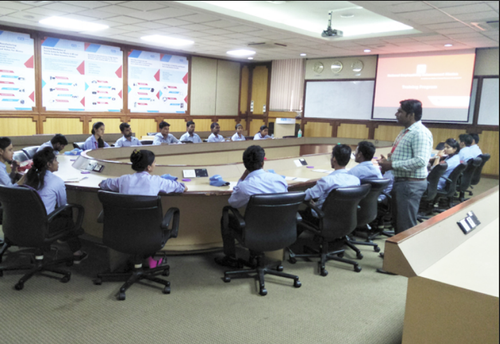The National Employability Enhancement Mission (NEEM) was established in 2013 by the Government of India. The purpose of the initiative is to upgrade the skills of laborers in India and to generate better employability rates.
All India Council for Technical Education (AICTE) is in charge of implementing the initiative. AICTE is in charge of the management and technical education in the country. The mission has some basic objectives to enhance the employability of people who are
- Pursuing diploma, graduation or post-graduation courses in technical or non-technical courses
- Discontinued studying after completion of tenth standard

Due to the demographics, India has immense potential when it comes to the employability of its youth. The National Employability Enhancement Mission (NEEM) was established to meet the dual purpose of generating better employability rates for the rural youth while also benefiting the economy of the country.
It is an understood fact that individuals belonging to the lower strata of society often have a lot of difficulties finding employment. They lack the knowledge, skills, and resources to seek employment. An initiative like NEEM aims to bridge the gap between the desire to work and finding employment. This mission provides opportunities to the youth through which they can gain practical job-related skills that can be developed to increase their employability.
NEEM is a program for apprenticeship to help the individuals enrolled in educational institutions get the first-hand experience of working in a professional environment.
What is a NEEM facilitator?
A NEEM facilitator works as a mediator between the companies and the school or university. For this, both the company and the facilitator have to sign an MoU. According to the company’s requirements, several different skill development programs are offered to individuals. The performance of the individual is assessed and based on that, the company may or may not hire them. In order to apply, the company must be registered with the Companies Act of 2013. If your company falls under the Act, it is eligible for being a NEEM facilitator. Another criteria that should be considered is that the company must be in the field of education, training, and business for at least five years. The company also needs to have the capacity to be able to place students successfully and have a good annual turnover.
If all of the requirements are met in terms of criteria, the company can register as a NEEM facilitator with AICTE and train individuals. A starting fee of Rs 5000 needs to be paid by the company to register, along with a fee of Rs 50,000 later for processing. The company would not be eligible for applying if anyone working in the company is facing criminal charges.
The registration is valid for three years, after which the registration would have to be reviewed once again.
Who can register to NEEM as a trainee?
Any person who registers themselves for NEEM is a student or a NEEM trainee. They should have a minimum educational qualification of 10th standard in school. A person is eligible for the scheme if they fall between the ages of 16-40. The trainees who are enrolled would be managed by a facilitator. The facilitators have to make sure that the trainees are paid their monthly stipend which is fixed for anyone belonging to the unskilled laborer category. According to the company’s policy, their working hours and their leaves are decided. Upon successful completion of the training process, the individual is certified by AICTE. The monthly reports of the trainee’s performances, attendance, and other aspects have to be submitted to the AICTE portal.
There are a wide variety of trades that a student can be enrolled in. These include automobiles, pharmaceuticals, transportation, textiles, media, healthcare, banking, education, real estate, hardware, jewelry, food processing, handlooms, leather, tourism, building and construction, electronics, and many others.
A trainee has to be trained for a minimum of three months and a maximum of three years. The training should be in accordance with the National Skills Qualification Framework (NSQF). The framework is in charge of organizing every qualification on the basis of skills, aptitude, and knowledge.
What is the status of the scheme?
To date, very few facilitators have been approved by AICTE. A total of 43 facilitators can be counted in twelve states. Over 4 lakh individuals have enrolled as trainees to the NEEM initiative. Maharashtra has the largest number of trainees so far, followed by Karnataka. This is a very good training program as being a part of it gives the trainee some practical experience. Overall, the training program needs better promotion as it is not well promoted and very little information is available regarding the scheme.
For more information about this scheme, do not hesitate to visit the website www.aisect.org
Vikas Sudan is the SEO Manager at whisskers marketing, an United States digital marketing agency. An expert in Digital Marketing and Blogging, He never misses an opportunity to spread the knowledge and share the industry’s best practices. Vikas Sudan is present on social media like Facebook, Instagram, LinkedIn, Pinterest & Twitter also.